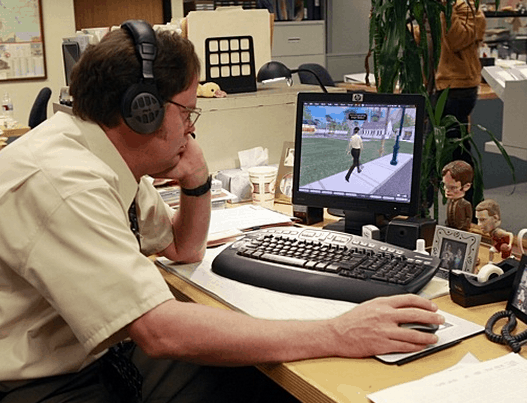
About six months into our marriage, we knew God was leading our hearts in a way that would construct our family differently than others, but uniquely similar to His own. Commands like James 1:27 hit like an anvil as we held hands and took the leap into the adoption process—which involves more paperwork than six mortgages and the sustained emotional energy of a category four hurricane.
Adoption is not for the faint of heart, but then again, as we’ve found out since our daughter came home from Ethiopia, neither is parenting. All families should have a missional trajectory, a bent to bring glory to the Father. For us, Russell Moore’s words ring true: “Adoption is defined as mission … Adoption tells us our purpose in this age as the people of Christ. Missional adoption spurs us to join Christ in advocating for the helpless and the abandoned.”
In our faith community, we don’t view adoption as trendy or easy or philanthropic. The process is hard, but seeing your identity as ‘orphan’ is harder. So we view adoption as a call to war. We see it as part of our reckoning, as our fight as we live as citizens of the City of God living in the City of Man.
But we also realize the command to care for orphans and widows—seen all throughout Scripture (James 1:27, Isaiah 1:17, Psalm 82: 3-4)—works itself out differently for different families. Much like missions, there are some who go and some who support and pray, but all are called to the Great Commission. Similarly, there are some who adopt and some who pray and support, but all are called to care for the least of these (Matthew 25:40).
So, if you know a family who has adopted or is going through the process of adopting, you should support and encourage them. It’s fine to ask questions about the process, but sometimes questions can get muddled, and it’s easy to not always know the appropriate way to ask certain things. So here are some tips on what not to say to adoptive parents, and some, er … better ways to phrase your questions.
“When Are You Having Your Own Kids?”
OK, my daughter may not be mine biologically speaking, but she is undoubtedly my own. The minute a family is referred an orphaned child, they believe they are parents. Why? Because they are. They fought, saved, fundraised, advocated and prayed their way through this process, and by God’s goodness, they are parents now, even if their child isn’t home yet.
Asking “When do you plan on having your own?” is the equivalent of poking an expecting mama bear. Every waiting adopted mom is expecting in a similar way to a woman who is pregnant, except her period of expecting may last years.
What you’re looking for is “Do you plan on having biological children?” That’s the appropriate way to ask about procreation.
“Could You Not Have Any Real Kids?”
Let me just save you from this one. Don’t step simultaneously step into a couple’s sex life/reproductive abilities/potential years of heartache/convictions as you cross them at Target. (Also, as strong orphan care advocates, we know many adoptions like ours, which were born out of conviction and not biology.) The question you’re looking for is: “What led you to this decision?”
The only thing less appropriate is…
“How Much Did She Cost?”
This may set off adopted parents like nothing else. My child is not a toy I put on Layaway. She is a human being. She lost her parents. And governments require much paperwork to be processed and fees to be paid to become the legal parent of another human being. This question implies: 1) Our child was purchased. That is not adoption, that is trafficking. 2) Our child is equivalent to an amount of money. Yes, adoption is costly, but ask yourself: would you ask a birth mom after coming home from the hospital her much her newly born baby cost?
“Did They Not Have Any American Babies You Could Adopt?”
This question cuts like none other. It reeks of an elitist, Americocentric mindset that, frankly, is completely opposite of how we should view the nations according to Scripture. If our families are missional, than our love should know no borders. Brokenness bleeds through ever culture, tribe, tongue and nation. Shouldn’t we fight to bring Gospel work to every corner of the globe? This means both adopting domestically and internationally for the glory of God.
“Are You Going to Tell Them They’re Adopted?”
My wife and I are white, and our daughter is black, so we’re just going to wait and see how long it takes her. Totally kidding.
But seriously, hiding adoption assumes it’s something negative or better left unsaid. But because of the Gospel, we want to celebrate adoption! A child has been rescued into a loving family and will hopefully come to know Abba as Father. This should never be swept under the rug but visibly celebrated in families as we see this metaphor for the Gospel.
“Those Kids Are Damaged”
Yes, someone actually said this to me. About a year into our adoption process, while we were knee-deep in fundraising, looking to God to meet each financial need as they arose; I received a phone call from a fairly disconnected family member. We didn’t speak often, but he felt compelled to call and give me his input on our situation. His words were not encouraging, they were not loving and they were not biblical. He said we needed to reconsider our adoption. Children from that part of the world were “damaged” and “dangerous,” and we were foolish to continue. I was obviously hurt and angry, but God’s grace showed me that our process gave us an opportunity to point to the why behind the adoption (Gospel!) and the need for adoption in Ethiopia. And just in case we forget, we’re all damaged.
Other Eye-Roll Worthy Comments
Other things less offensive, but that may still get an eye roll:
“You’re just like Brad and Angelina.” No. Just no.
“She is so lucky.” Sigh. No, we are.
“Is she yours?” Why yes. Yes, she is.
“Is your wife black?” No, but thank you for asking?






















